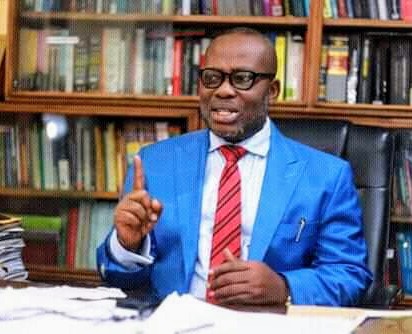Senior Advocate of Nigeria, Monday Ubani has suggested that Nigeria’s judiciary should have its internal enforcement unit. He made this recommendation while raising an alarm over the judiciary’s inability to enforce its own judgments, calling it a major flaw in Nigeria’s justice system. According to him, this weakness emboldens defiance, especially from powerful institutions and political actors.
Speaking during an interview with ARISE NEWS on Friday, he stated, “The judiciary has a big problem in terms of having those that should enforce the pronouncement of the court. ” Ubani said this, suggesting the need for an internal enforcement unit under judicial control. He added, “The police that’s supposed to enforce judgment of the court does not belong to the judicial sector. They are part of the executive. So part of the prescription is that, can we look at the issue of having the judiciary to have a standing enforcement unit that can enforce its judgment? “Because we have an issue with the Nigerian police that is part of the executive. Most times pronouncements are made, and you find out that the police become a stumbling block. You make a pronouncement even against the IGP, or even against the police, you find out that it becomes impossible for you to enforce that judgment, or any of the security agencies. “So the issue is, can we now probably begin to look at the possibility of having an enforcement unit within the judicial sector that can enforce their judgment? “Ubani also stressed that judges must no longer shy away from using contempt proceedings against those who ignore court orders.
He said, “It is also very important that the judiciary must begin to activate the power of punishment, issue of contempt proceedings. Most times you find out that some of the judges are very afraid even to enforce their own judgment after they have made a pronouncement and there is flagrant disobedience to that particular judgment.
“The court is supposed to activate the power of punishment, contempt proceeding, in order to ensure that that judgment is actually obeyed and complied with. These are issues.“So, the enforcement unit within the judicial sector, then the judges must be very bold enough to enforce their judgment. If somebody disobeys that judgment, that pronouncement, then somebody must go in for it. Somebody must be punished.
”His remarks come in light of a worrisome trend that Nigeria has witnessed in recent times, where parties to legal disputes—especially political ones—deliberately twist the final decisions of the courts, including those of the Supreme Court, to suit their personal or partisan agendas. Instead of accepting the finality of a judgment, these individuals selectively quote rulings, fuelling confusion, political tension, and widespread misinformation.
This behaviour highlights a deeper flaw in the system—one that Ubani says is rooted in the judiciary’s powerlessness to enforce its own pronouncements.
Melissa Enoch

